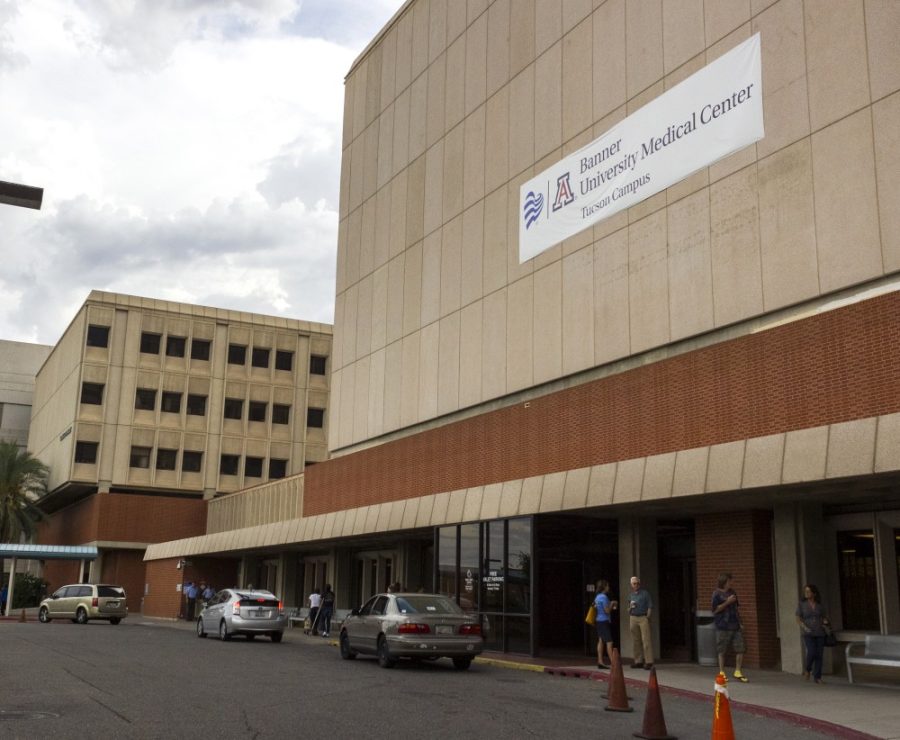The recently established University of Arizona College of Medicine–Phoenix was issued a warning by accrediting body Liaison Committee on Medical Education. If the college does not make changes to its governing policies, it could face probation or loss of accreditation as an independent medical school.
The warning came after a visit early in the year by the committee, responsible for the college’s accreditation process, was visiting the campus to evaluate if the institution had met the criteria to move up to a “provisional” accreditation status over the “preliminary” accreditation status the college has held since 2012.
Both statuses are steps for the school to gain its full accreditation.
Instead of finding the college meeting its criteria, the committee, which could not be reached for comment, found four areas in which the college may need to readdress its governing practices.
Haig Aintablian, a second year medical student attending the college, said the school has been transparent during the accreditation process. They kept their students informed throughout via frequent town hall meetings.
“For us, everything has been taken care of in every aspect of our education,” Aintablian said, speaking about the governing lapses cited by the LCME. “So when it comes to our curriculum or anything like that, we haven’t seen any effect at all.”
A large part of the committee’s hesitation to upgrade the school’s status pertains to the recent merger between the UA and Banner Health. The committee cited concerns that the new partnership could possibly limit student opportunities and resources.
“The Banner affiliation was happening at about the exact same time that the accreditors were here, so I think there was just some confusion about that huge document,” said Judy Bernas, associate vice president of University Relations for the Phoenix campus.
The first issue cited a need for clarification on power and responsibility of the dean in relation to the newly formed Academic Management Council.
The council was formed after the Banner merger to oversee the relationship between Banner Health and the UA, and to oversee faculty operations and academic activities within Banner – University Medicine Division.
The LCME is asking the college to further define lines of authority between the council and the dean on decisions made about the college.
In addition to that, 10 of the 22 department chairs are also vacant at the moment, raising another area of concern for the LCME.
According Bernas, the college is making quick moves to fill those vacancies by launching searches for potential candidates and instating interim chairpersons.
The third issue regards the number of faculty who are on the college’s admissions committee. This is another issue that the college is making quick strides to remedy, as the change to the bylaws will be voted on by faculty in the coming months.
Again, surrounding the Banner merger, the LCME is concerned with the dean and the faculty’s ability to ensure that students have all of the clinical rotations that they need. This concern stems from a stipulation of the merger that gives Banner the authority to sever the university’s existing ties with other hospitals by Feb. 2019.
Bernas, however, wants to ensure students attending the college that the administration is not going to let anything happen to the school’s status.
“We’re really reassuring them that this college is accredited, [and] there is nothing wrong with the education that they are getting here,” Bernas said. “In fact, the LCME was really laudatory of the student experience and the student learning and the curriculum, so that was really a strength of the college that they found.”
According to Bernas, the warning status that the school received was more of a heads up to areas that may be in need of more attention. Pointing out areas in need of improvement is part of what the LCME does with new schools, and the warning is nothing more than a reminder for the college to correct issues before they move too far down the line, she said.
“I think of it like soccer with a yellow card … . It’s kind of like, ‘Hey! We’re looking at this, and we want to make sure that we address this before you guys take the next step,’” Bernas said.
For students, this warning doesn’t mean too much. The college still retains its status as an accredited medical school.
“With regards to the student body being affected, I haven’t seen that at all,” Aintablian said. “I don’t [think] any of the students really are worried about the accreditation thing because so many other schools run into issues and this isn’t even a big one.”
The LCME has allowed the college one year to improve upon the aforementioned issues and expects a progress report from the dean by Dec. 1, 2016.
Follow Sam Gross on Twitter.









